Switching to FreeNAS
I’ve been running a little short on storage space lately, so I decided to take the plunge and order a new storage system. Previously I was using a Synology DS413 with four 3TB Hitachi disks and I was hoping to get a Synology again for my new system, however once you want a Synology unit with more than four bays the price goes up quite significantly.
After a lot of research and reviewing of similar builds, I ended up with the following components.
Component List
Case - Fractal Design Node 304
This case fits six drives, a Mini-ITX motherboard and a standard ATX power supply. Cable management is quite difficult however the entire case is less than 20L in size which is only marginally larger than my existing Synology unit.
Motherboard - ASRock E3C224D2I
Unfortunately there isn’t much choice when it comes to server-grade Mini-ITX motherboards, however this one fits the specifications quite nicely. It has six SATA ports (2 x SATA2, 4 x SATA3), two ECC DDR3 slots, a BMC chip and two Intel GBe ports. The other option was an Atom Avoton C2550 motherboard however I wasn’t too keen on a non-upgradable CPU and using a Marvell storage controller over an Intel one.
CPU - Intel Core i3-4160
Surprisingly, the Core i3 supports ECC RAM! I was originally going to get the Core i3-4150 however this model was on sale and ended up being cheaper.
Memory - Kingston KVR13E9K2/16I
After reading lots of stories of incompatible memory, I decided to go with RAM sticks that somebody else had tested.
Power Supply - Corsair CX600M Modular
80+ Bronze certified and six SATA power connectors. I would have rathered an 80+ Gold certified power supply but the price difference was too great.
OS Disk - SanDisk Cruzer Fit 16GB
A nice and small USB key that can be installed directly on to the motherboard.
Storage Disks - 6 x Western Digital Red 6TB WD60EFRX
Originally I was going to order Western Digital Green 6TB WDEZRX drives and run WDIDLE3 on them to fix the LCC issue, however I found that the two models were fairly close in price and the Reds have a longer warranty.
OS - FreeNAS
For the OS, I chose FreeNAS after reading a lot about ZFS. The drives are configured in a RAID-Z2 configuration (similar to RAID6) which can tolerate two disk failures. This gives me 36TB of raw storage and 21.8TB of usable storage.
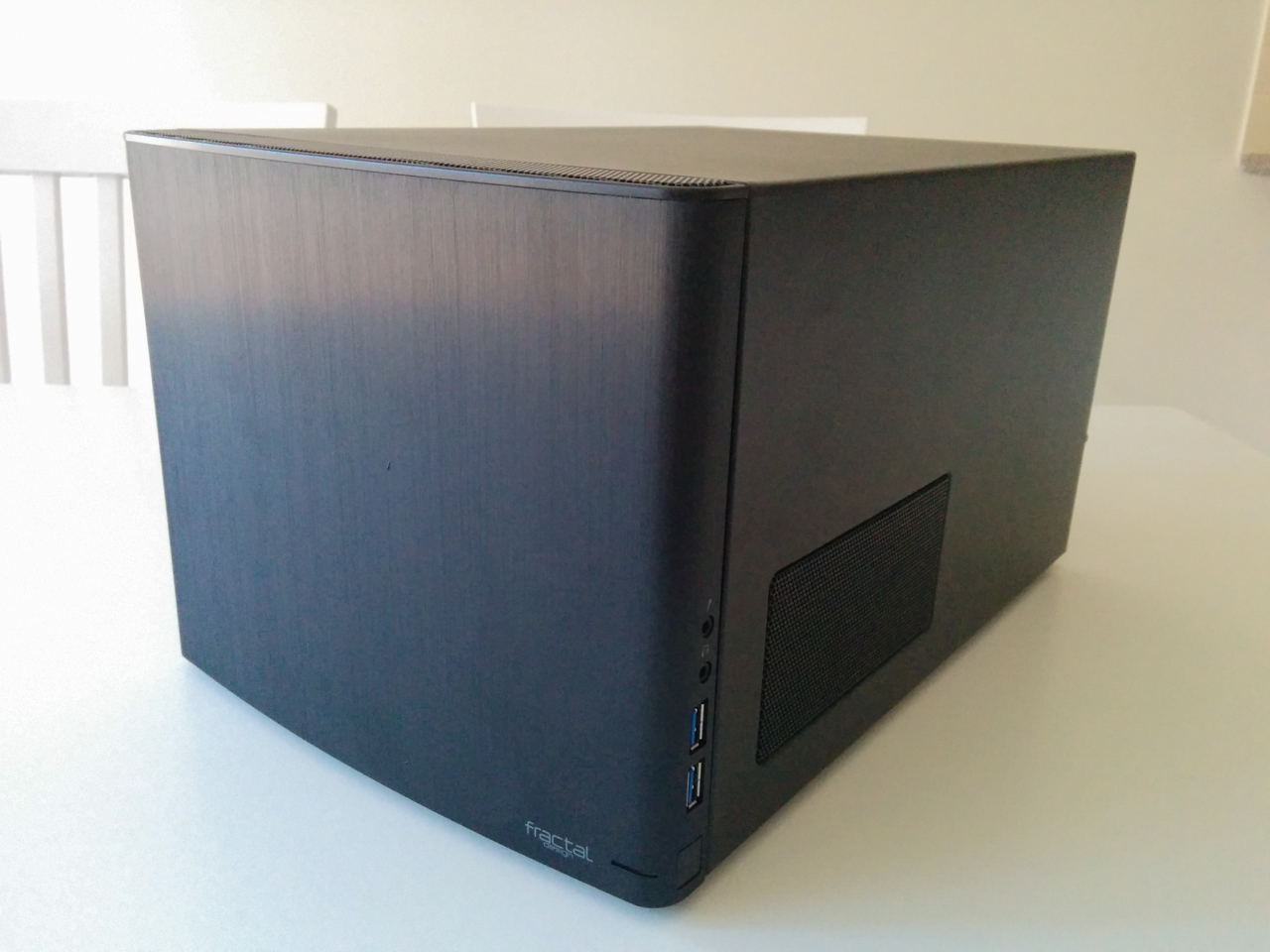
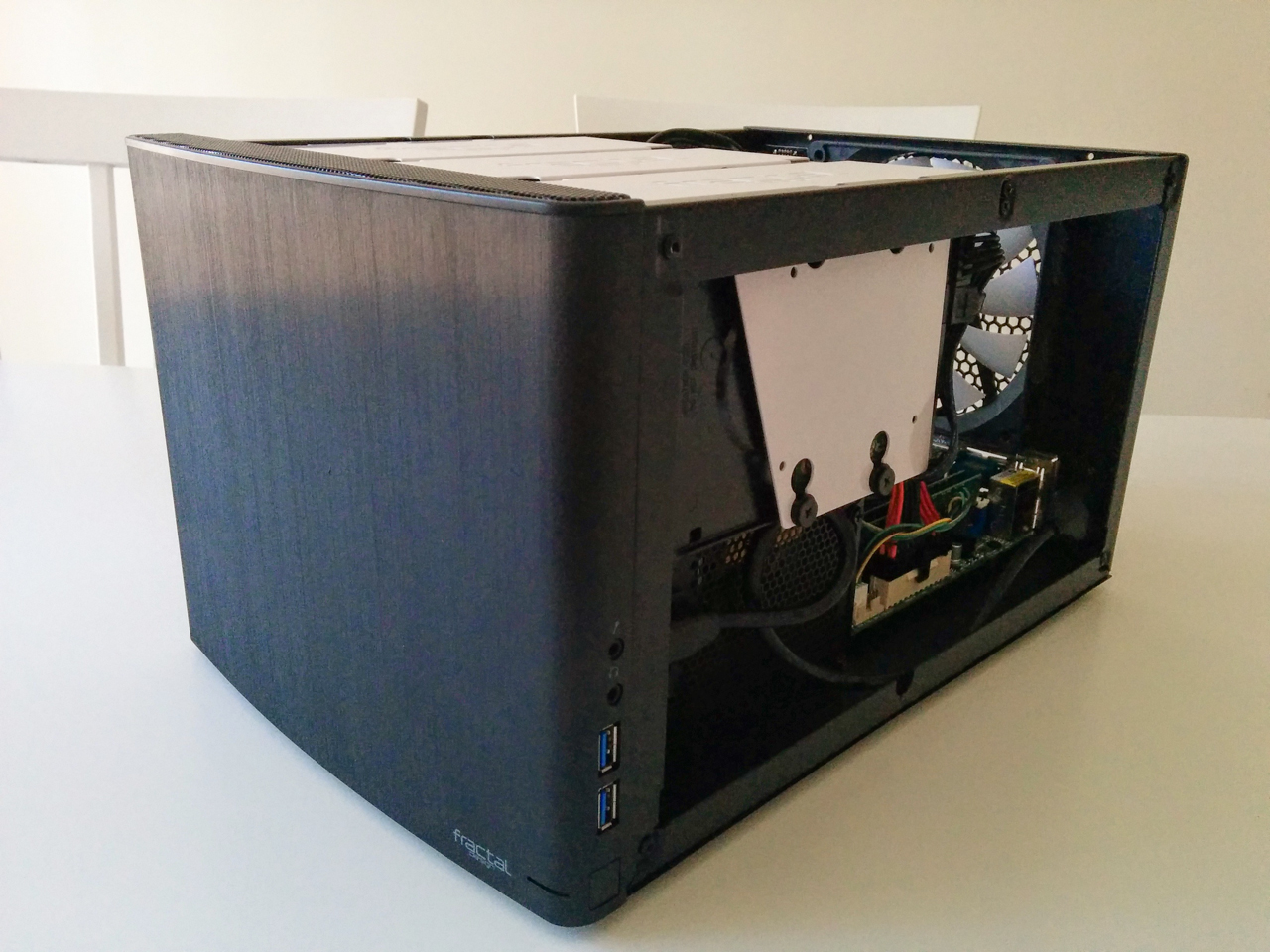
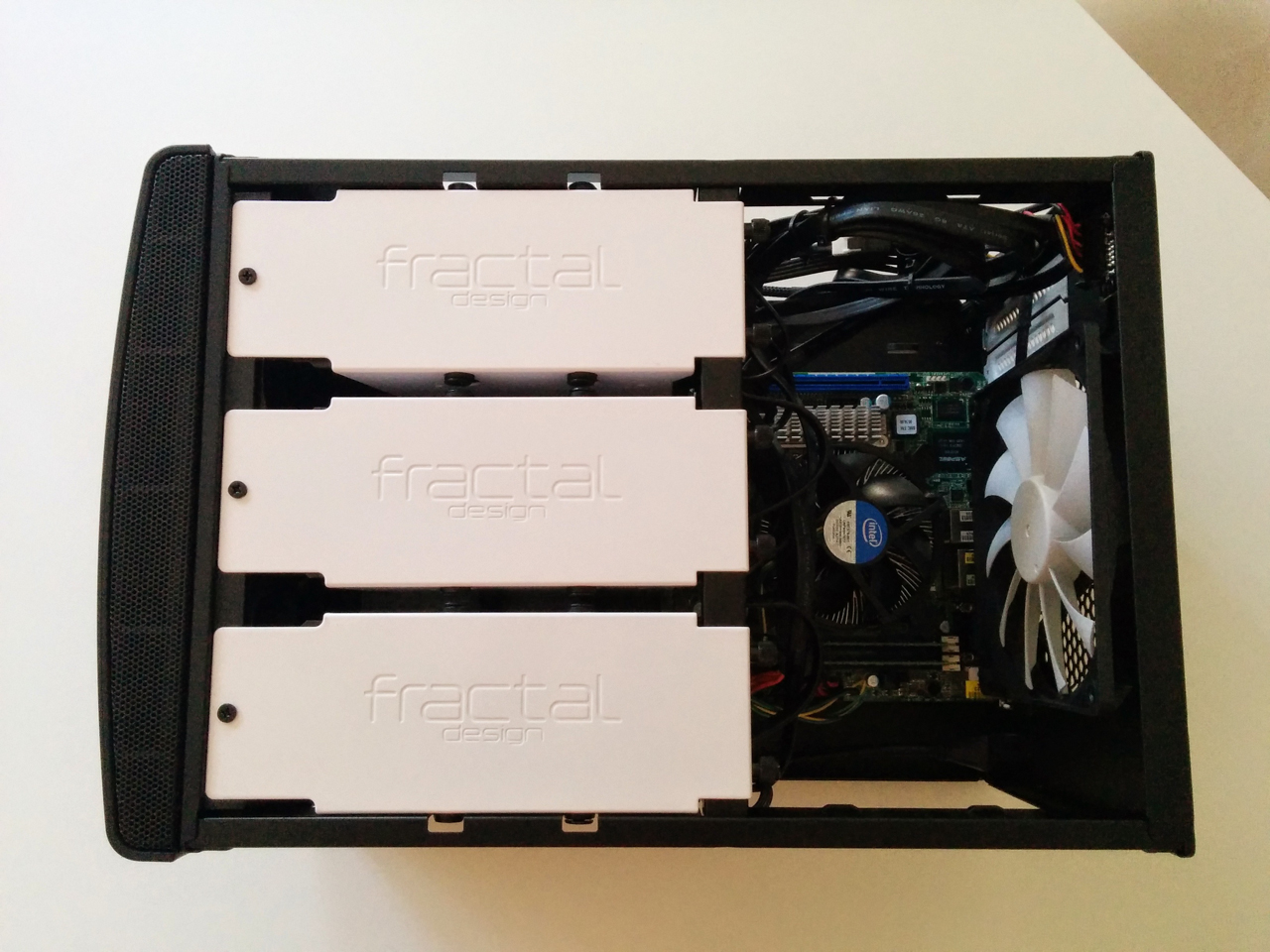
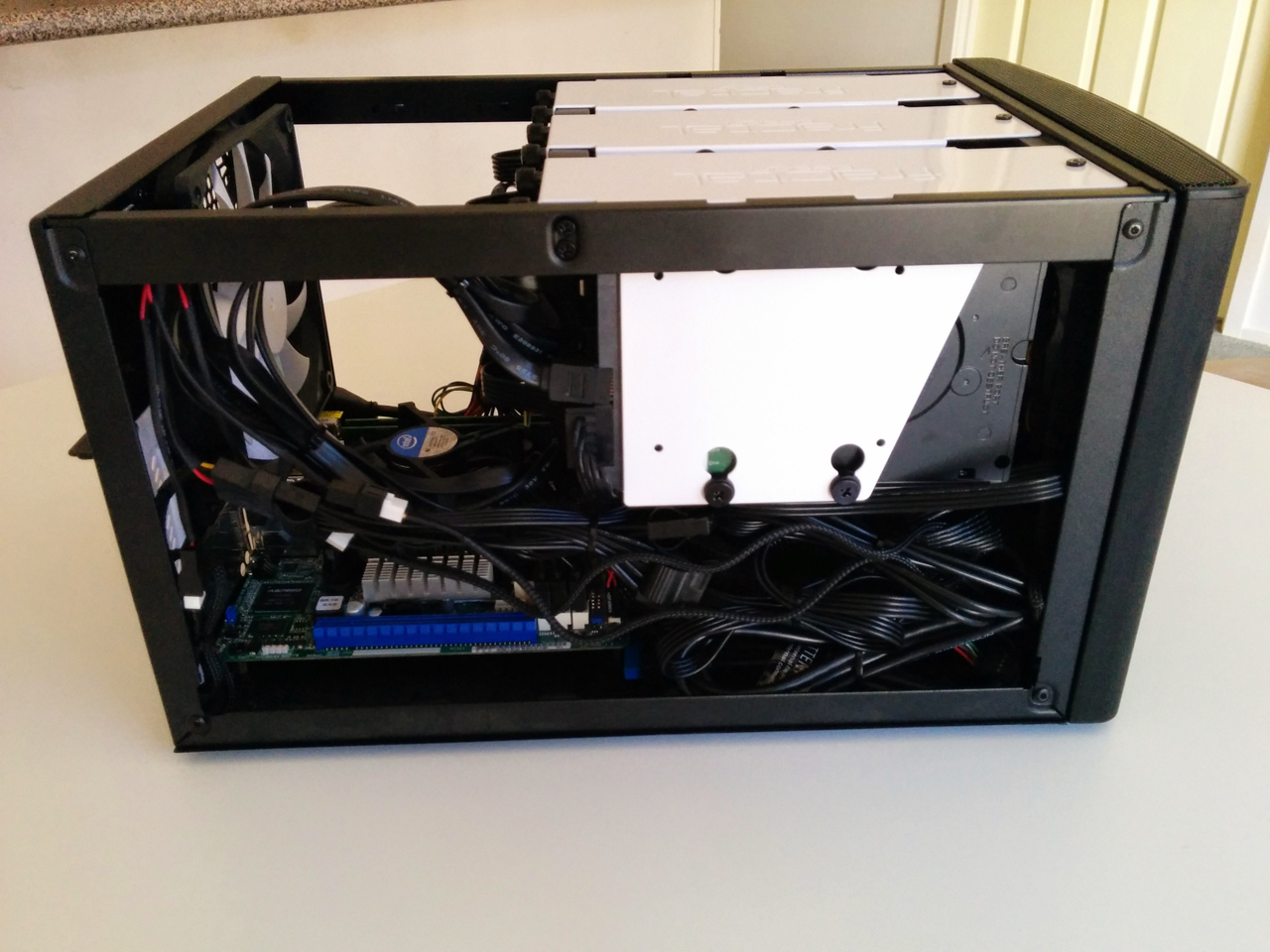
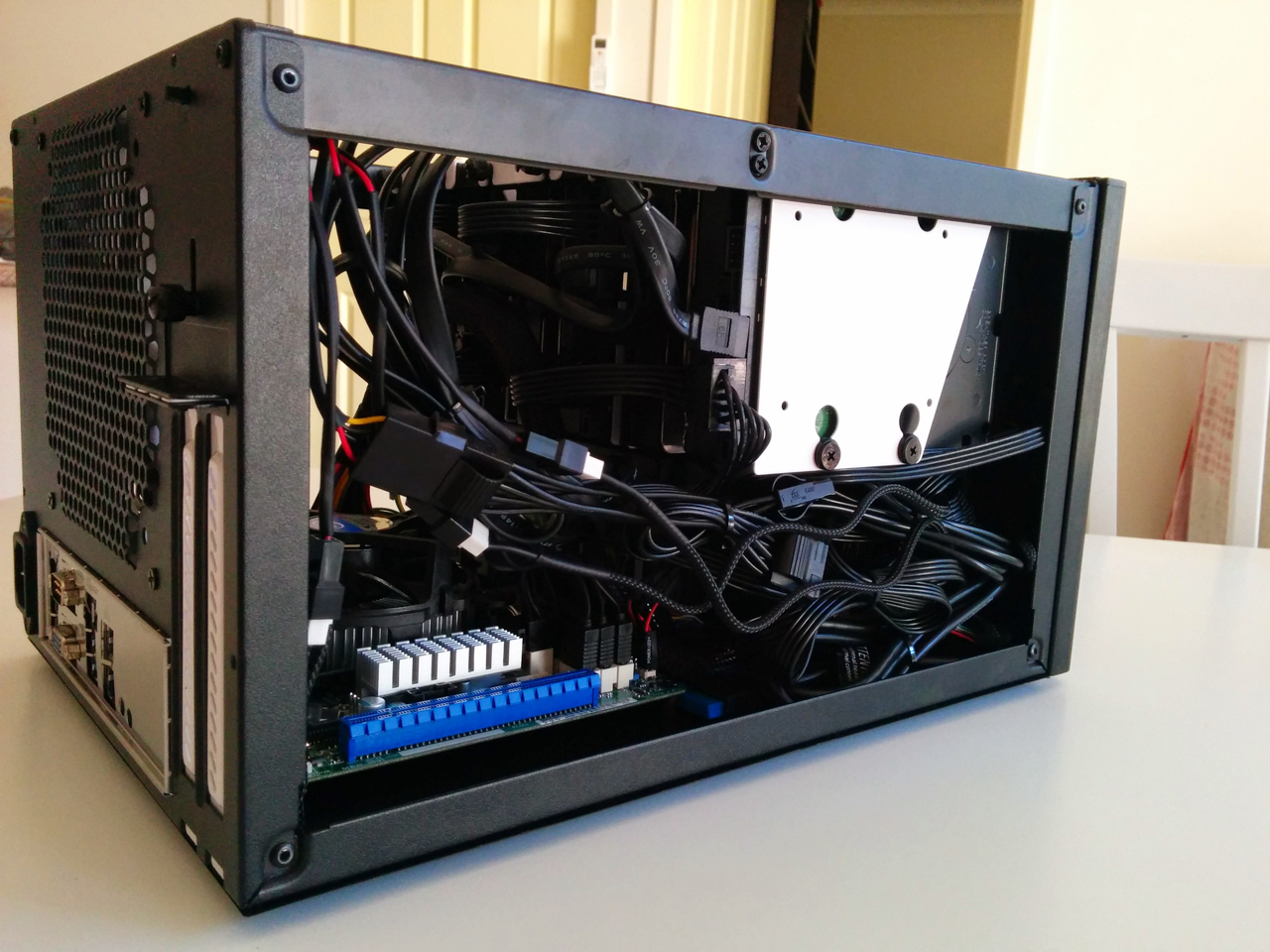
Performance
To test performance, I had two panes open in tmux and ran one command in each window:
- Pane 1:
iozone -a -s 24g -r 4096 -+w 1 -+y 1 -+C 1 - Pane 2:
zpool iostat 1
Watching the zpool iostat output whilst iozone was running, I saw that my maximum read speed was around 550-600 MB/s and my maximum write speed was around 300-350 MB/s.
Thoughts
The next upgrade will be 10gbit networking, however this is a long way off and not really needed at the moment. With a switch upgrade I will be able to use teaming but there is generally only one client accessing the server at once which negates this.